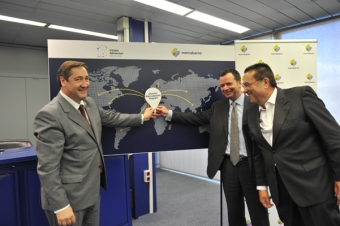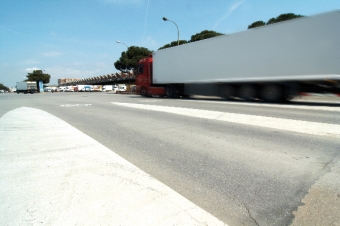A Boost to Exports
Mercabarna wants to make it easier for Food Unit firms to access international markets. To that end it has implemented the “Mercabarna Export” cluster, an initiative which, through collaboration and the establishment of synergies between companies, organisations and institutions, will help them export more and in a better way.
The “Mercabarna Export” cluster currently has 27 stakeholders, mostly members of the Barcelona Food Cluster Association, and a further five businesses which joined following the initiative's public presentation. The stakeholders have been working for a number of months and under Mercabarna’s coordination on a road map designed on the basis of the companies’ concerns and requirements and which should be used to increase or, in some cases, initiate their international activity.
This road map focuses on three basic areas of exporting: sales, logistics and financial aspects. The goal is to create specific taskforces as concrete projects related to each of these areas emerge.
One recent example is the taskforce created in mid-December as part of the sales area, which will tackle the activities to be carried out as part of the Fruit Logistica trade fair, set to take place in Berlin in February and which Mercabarna will take part in. This group also drafted a schedule of fairs of interest for the 2014-15 year and made a note of possible sales missions to perform, involving either direct sales (visiting potential customers in their home countries) or inverse sales (visits to Mercabarna by potential customers).
January is set to see the creation of a taskforce within the logistics area that will look at ways of optimising the ground transportation of fresh produce and which will be advised by businesses including Tae Transportes and Logístico Pabellón G.
New cluster presentation
Although the “Mercabarna Export” cluster has been operational for a few months already, the public presentation of the initiative took place on 5 November, at an event which included the presence of the Catalan Minister for Agriculture, Livestock, Fisheries, Food and Natural Environment, Josep Maria Pelegrí, and which drew over 70 businesspeople and representatives from institutions and organisations.
During the institutional presentation, Mr Pelegrí emphasised the cluster’s importance in making a sector “as powerful and dynamic as the agrifoodstuffs industry gain even more growth possibilities”. For his part, Mercabarna managing director Josep Tejedo said the cluster was established “to respond to the needs of companies that wish to export”. He also asserted that the cluster would be successful if it is capable of providing “tangible and concrete results for companies”. Finally, the chair of the Mercabarna Concessionaires’ Association (ASSOCOME), Joan Llonch, said that his organisation must continue to support exports, a business area he classified as commonplace today for many Mercabarna businesses. “Exports will account for around 27% of sales in 2013," he said.
Sales missions on potential markets
To open the event, economist and IESE professor Jaume Llopis gave a speech that focused on explaining the hits, misses and benefits of internationalisation.
The rest of the day was divided into three thematic blocks, in a preliminary approximation of the strategic areas the new cluster will work in.
Cocedero de Mariscos sales manager Francisco Sanmartín opened the block dedicated to the sales area, explaining his company’s experience in moving onto new markets. Mercabarna’s Foreign Markets manager José Montoro then presented the results of a number of market surveys carried out at the request of the cluster companies in countries including Germany and Poland to detect potential customers for fruit and vegetable firms, and in Poland and China to detect the same but for fishery businesses. “These potential customers are impressed by the variety and quantity of our supply and the flexible services Mercabarna firms offer, and we must make the most of this,” Mr Montoro said.
Indeed, the first concrete action deriving from the results of the surveys was carried out during the Seafood Barcelona fair, held in October. In this framework, Mercabarna organised around 30 interviews between the estate’s fishery firms and potential buyers from Poland.
Logistics opportunities
Another key area with regards exporting is logistics. This point was driven home by Logístico Pabellón G manager Joan Capdevila, whose speech focused on the new cluster’s role in seeking the best solutions for businesses in this field.
The event also featured the presence of the sales manager for Grimaldi Logística España, Francesco Decandia, who explained the sea-shipping services his firm offers and drew particular attention to its interest in "working with Mercabarna to establish new trade routes". Meanwhile, Anaïs Fàbregas, from the Freight Development department of the Spanish airports and air-navigation operator AENA, presented the airport as a “strategic partner in exporting perishable goods” and said that AENA is working on new destinations and actions to boost customer loyalty.
The key points of the financial strategy
The day ended with the block dedicated to the financial area, which featured speeches by the general manager of Frutas y Hortalizas Gavà, Joan Llonch, and the director of the business internationalisation area at the Barcelona Chamber of Commerce, José María Cervera. Both speakers emphasised the importance of choosing international companies carefully and developing relationships of trust with them. Mr Cervera also listed a number of key points for deciding the best financial strategy when it comes to exporting.














